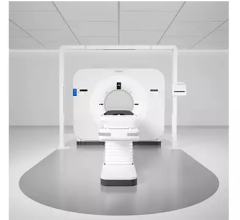July 20, 2008 - Patients with a rare type of breast cancer may benefit from receiving radiation therapy in addition to surgery to prevent recurrence, according to a study in the July issue of the International Journal of Radiation Oncology Biology Physics, the official journal of the American Society for Therapeutic Radiology and Oncology.
Phyllodes tumors are rare breast tumors that develop in the connective tissue of the breast, as opposed to more common carcinomas, which develop in the ducts or lobules of the breast. Most patients are treated for phyllodes tumors with either a lumpectomy or mastectomy, with only a small fraction of patients receiving radiation therapy.
Traditionally, adjuvant radiation therapy is recommended for cancer patients with local recurrence risks of 15 percent or greater, but the value of adjuvant radiation therapy has not been extensively studied for phyllodes tumors because they are so rare.
Researchers at the Division of Radiation Oncology, Department of Medical Physics, and Department of General and Oncologic Surgery at City of Hope National Medical Center in Duarte, CA, sought to determine the local recurrence rates of phyllodes tumors based on tumor size and the type of surgery performed and whether adjuvant radiation therapy should be considered as a treatment for some phyllodes tumor patients to reduce their local recurrence rate.
“Typically these tumors are treated well by surgery alone. However, local recurrences are not uncommon,” said Richard Pezner, M.D., lead author of the study and a radiation oncologist at City of Hope National Medical Center.
The study authors reviewed records of 478 patients with malignant phyllodes tumors who were treated between March 1964 and August 2005. The records came from the IMPAC National Oncology Database, which consists of tumor registries from 130 hospitals.
The researchers found that the risk of local recurrence for phyllodes tumors was related to tumor size and the type of surgery received. They determined that adjuvant radiation therapy should be evaluated for phyllodes tumor patients who received lumpectomies for tumors at least 2 centimeters in size or a mastectomy for tumors at least 10 centimeters in size to reduce the risk of recurrence.
Source: ASTRO (American Society for Therapeutic Radiology & Oncology)
For more information: www.astro.org


 December 11, 2025
December 11, 2025 









